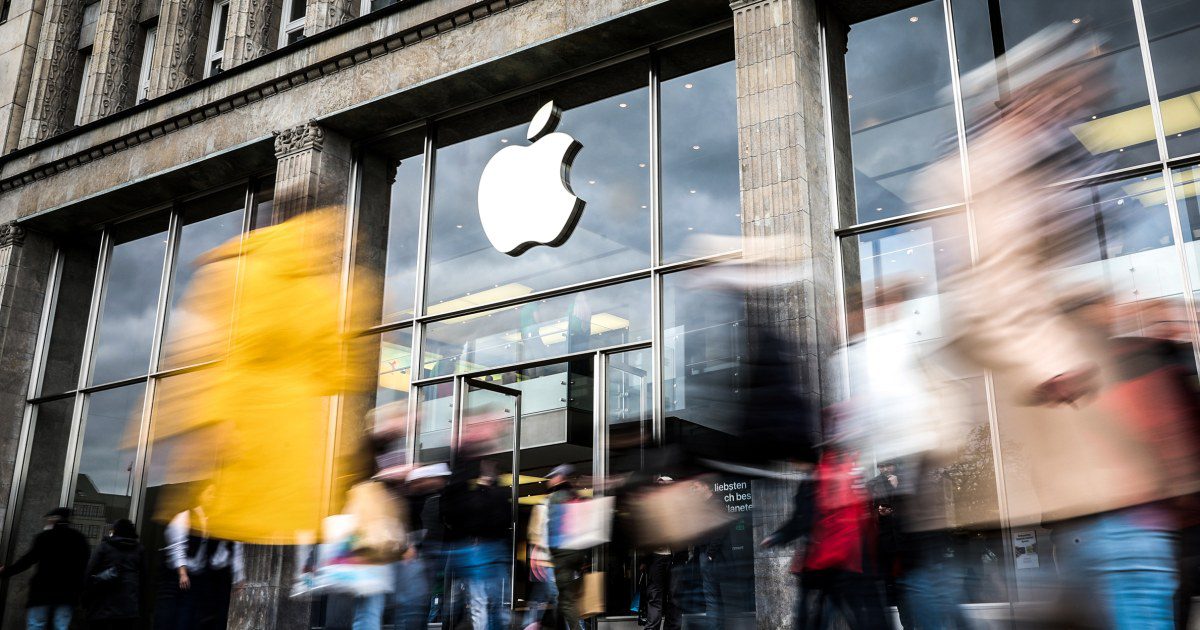
Apple Inc. reiterated its dedication to pour hundreds of billions into the U.S. economy on Monday, coinciding with increased pressure from President Donald Trump and the looming threat of tariffs.
The tech powerhouse announced plans to invest a staggering $500 billion over the next five years, which will include the creation of 20,000 new jobs and a focus on developing artificial intelligence servers.
Key elements of this investment initiative involve establishing a server manufacturing facility in Houston, projected to commence operations by 2026, alongside a manufacturing academy in Detroit. Moreover, the investment is set to enhance data centers across several states including Arizona, California, Iowa, Nevada, North Carolina, Oregon, and Washington.
This announcement marks the latest in a series of significant commitments by Apple to bolster its presence in the United States, signaling an acceleration of its existing investment strategies.
In 2021, the company had disclosed plans to invest $430 billion domestically over five years. During Donald Trump’s first term in 2018, Apple committed to contributing $350 billion to the American economy within a five-year period, which included the promise of adding 20,000 jobs.
Additionally, Apple confirmed the commencement of chip production at a facility operated by Taiwan Semiconductor Manufacturing Co. in Arizona, a development that began under the Biden administration. This news aligns with prior reports on the topic.
President Trump attempted to take credit for this latest announcement, suggesting it was influenced by a recent meeting with Apple CEO Tim Cook. He mentioned that potential tariffs played a role in Apple’s decision-making process.
“They prefer to operate without the burden of tariffs,” Trump stated, noting that Cook had supposedly abandoned plans to construct two plants in Mexico, a claim that Apple has not corroborated.
On his platform, Truth Social, Trump attributed Apple’s announcement to “faith in what we are doing.”
In a recent note to investors, UBS analysts expressed skepticism about Apple being able to allocate $500 billion in the specified timeframe, citing the company’s heavy dependence on international suppliers and its historical reluctance to make substantial capital investments compared to other large tech firms.
“While the reported figure appears impressive, we question its practicality based on past performance,” the analysts remarked.
Apple’s strategy to steer clear of tariffs mirrors its approach during Trump’s first term when the company allowed the president to take credit for a Texas plant that had been operational long before his administration began. Like other products that Apple manufactures in the U.S. or intends to market, the Texas-made Mac is not one of its flagship models. The company’s major revenue generators, including the iPhone, continue to be produced overseas.
Moreover, Apple and Cook went further during Trump’s second term by contributing to his inauguration fund, with Cook attending the swearing-in ceremony.
The new positions Apple aims to create will primarily focus on research and development, engineering, and artificial intelligence. The company also plans to increase funding for its existing advanced manufacturing initiatives.
“We hold a positive outlook on the future of innovation in America, and we’re excited to build upon our extensive U.S. investments with this $500 billion commitment for the nation’s future,” stated Cook in a formal announcement. “We’ll continue collaborating with individuals and firms across the country to help craft an extraordinary new chapter in American innovation history.”
Apple’s stock experienced minimal fluctuations during early trading on Monday.









